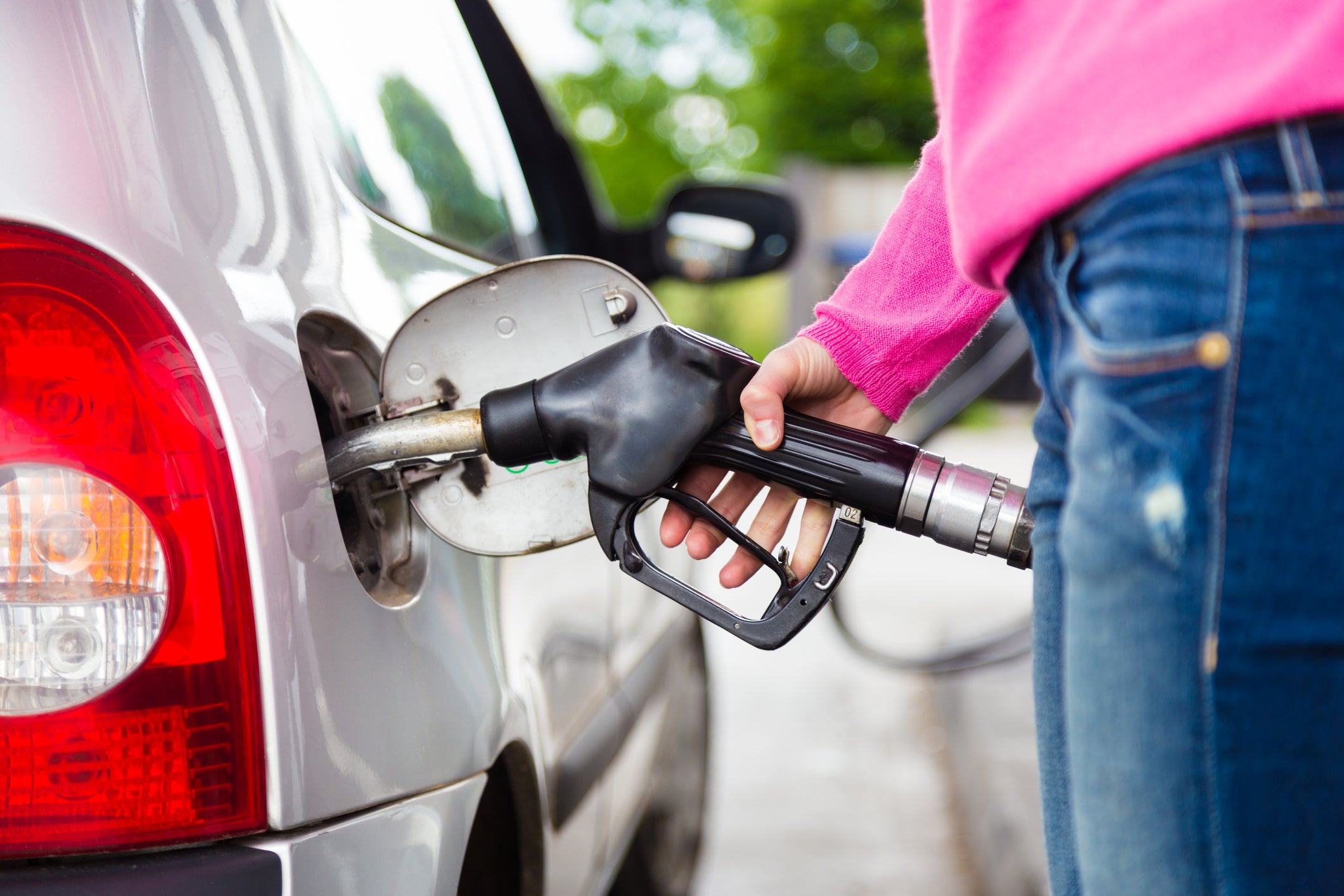Panic-buying: How to reduce the temptation to stockpile petrol and food
'Think about the people who can't afford to stockpile things and try to find the gracious, generous, calmer part of ourselves and act from there’

Drivers are continuing to wait in long queues as panic buying at petrol stations across the country continues into a fourth day.
Panic buying of fuel began after a BP whistleblower leaked concerns to the press that the shortage in lorry drivers could impact the UK’s ability to keep up with fuel deliveries, comments the chair of the Petrol Retailers Association (PRA), Brian Madderson, has called “completely and utterly irresponsible”.
The surge in demand led the PRA to warn that as many as two-thirds of its membership of nearly 5,500 independent outlets were out of fuel on Sunday, with the rest of them “partly dry and running out soon”.
The government and supermarkets have warned drivers not to panic buy fuel, with reports that Boris Johnson has considered bringing in soldiers to deliver fuel to petrol stations.
Speaking on Sunday, Transport Secretary Grant Shapps said there is“no shortage of fuel” and that people should be “sensible” and fill up only when they need to, however.
As the news of shortages spreads, the public may once again face the temptation to buy more petrol or items than they need. Consumer psychologist Kate Nightingale, founder of Style Psychology, says our impulse to buy what we don't need is driven by loss aversion or FOMO (fear of missing out).
"It’s the idea that you can lose something you don't actually have," she tells The Independent. "The potential of pain or loss is sometimes too great to not act upon."
Consultant psychiatrist Dr Andrew Iles, of Priory’s Oxford Wellbeing Centre, says, “But panic buying is generally unnecessary in this country and unhelpful to everyone."
Why do people panic buy?
This desire to buy more is heightened when we are emotional, tired, stressed, under the influence of alcohol or when we’re sleep-deprived. “Unfortunately, all of us have experienced at least one of these states very often this year,” says Nightingale.
Dr. Iles agrees: “There is the potential to ‘trip’ into a panic where all rational thinking and reasoning is overpowered. For some people, shopping is the medicine to fear and a temporary comfort from stress, anxiety – and even loneliness."
Many of us have felt we have less control our own lives due to the pandemic, shopping restrictions, and uncertainties such as Brexit. All of these things “create very fertile circumstances for impulse and panic buying”, says Nightingale.
Although we are all experiencing similar things during the pandemic, Covid-19 has made most of us feel increasingly isolated from each other, and panic buying is a symptom of this. Psychotherapist Kimcha Rajkumar believes the fear that plays a big part in stockpiling only serves to isolate us further from the rest of society. "Fear of there not being enough makes us disconnect from a sense of belonging to a wider community and just think about ourselves and those closest to us," she says.
"We all have been frightened, to varying degrees, for a very long time," says Rajkumar. "This latest situation is coming on the back of months of unfamiliar, unpredictable experience that has no clear path out. Our sense of being under threat has been unremitting. The rational calm part of ourselves is not as readily to hand as it might have been before."
How can we curb the urge to fill up our tanks and trollies?
"Take a moment, sit quietly and think of everyone who lives on your street, your tower block, the school your kids go to, etc. Think about the people who can't afford to stockpile things and try to find the gracious, generous, calmer part of ourselves and act from there."
Exercise and meditation are both practical and effective ways to curb the urge to panic purchase. "Both are scientifically proven to reduce impulse buying and increase overall sense of control over our lives. So, we are in a better place we might think," says Nightingale.
If the recent news about potential petrol shortages is making you tempted to stockpile "distract yourself", says Nightingale. "Do something else. Be with your family or pets," and try meditation "or at least breathing deeply. It reduces your arousal (a state if intense readiness) and allows your conscious mind to have a voice rather than you following your subconscious urges”.
What if you have already stockpiled?
If you've been unable to resist the urge to panic buy, and know you're not going to consume everything you've bought in time, don't let perishables go off, or medicines go out of date, instead connect with your community. Ask neighbours if they need anything, "give some of your extra shopping to an elderly neighbour, a single parent, a homeless person or a foodbank", says Rajkumar.
Join our commenting forum
Join thought-provoking conversations, follow other Independent readers and see their replies
Comments
Bookmark popover
Removed from bookmarks